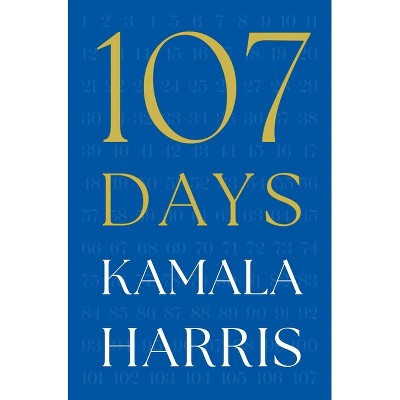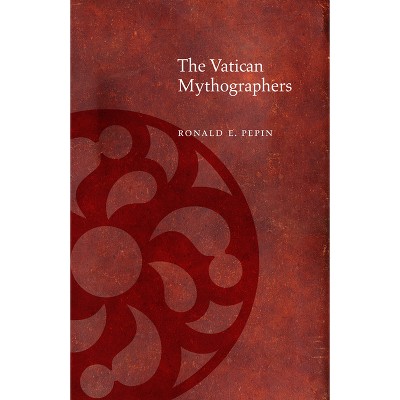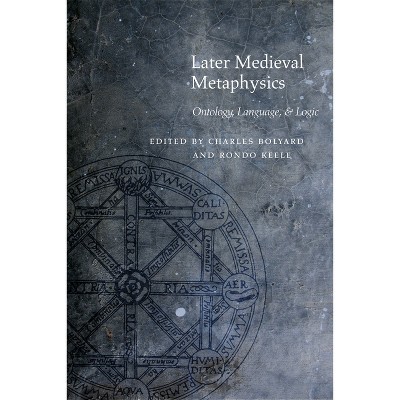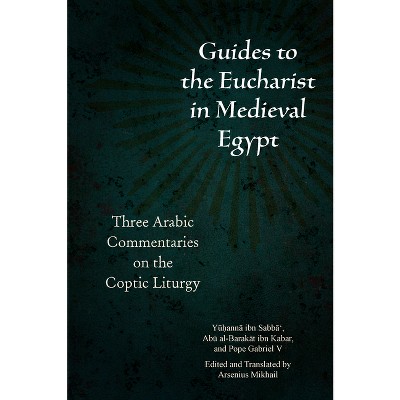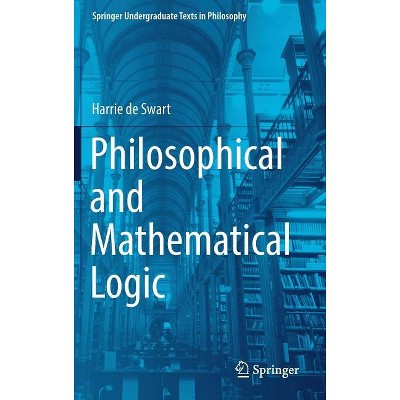The Logic of the Trinity - (Medieval Philosophy: Texts and Studies) by Paul Thom (Hardcover)

$74.99 sale price when purchased online
$77.00 list price
Target Online store #3991
About this item
Highlights
- This book recounts the remarkable history of efforts by significant medieval thinkers to accommodate the ontology of the Trinity within the framework of Aristotelian logic and ontology.
- About the Author: Paul Thom is Honorary Professor of Philosophy at the University of Sydney.
- 260 Pages
- Religion + Beliefs, Philosophy
- Series Name: Medieval Philosophy: Texts and Studies
Description
About the Book
This book recounts the remarkable history of efforts by significant medieval thinkers to accommodate the ontology of the Trinity within the framework of Aristotelian logic and ontology. These efforts pushed creatively beyond the boundaries of existing thought while trying to strike a balance between the Church's traditional teachings and theoretical rigor in a context of institutional politics. In some cases, good theology, good philosophy, and good politics turned out to be three different things.The principal thinkers discussed are Augustine, Boethius, Ablard, Gilbert of Poitiers, Bonaventure, Aquinas, Scotus, and Ockham. The aspects of Trinitarian doctrine dealt with are primarily internal ontological questions about the Trinity. The approach draws on history of theology and philosophy, as well as on the modern formal disciplines of set-theoretic semantics and formal ontology.All these accounts of the Trinity are evaluated relative to the constraints under which they were formed, bearing in mind that the constraints on philosophical theorizing are not limited to internal consistency but also take note of explanatory power. Besides analyzing individual accounts of the Trinity, the book provides a novel framework for comparing different theories.Book Synopsis
This book recounts the remarkable history of efforts by significant medieval thinkers to accommodate the ontology of the Trinity within the framework of Aristotelian logic and ontology. These efforts were remarkable because they pushed creatively beyond the boundaries of existing thought while trying to strike a balance between the Church's traditional teachings and theoretical rigor in a context of institutional politics. In some cases, good theology, good philosophy, and good politics turned out to be three different things.
The principal thinkers discussed are Augustine, Boethius, Abélard, Gilbert of Poitiers, Bonaventure, Aquinas, Scotus, and Ockham. The aspects of Trinitarian doctrine dealt with are primarily internal ontological questions about the Trinity. The approach draws on history of theology and philosophy, as well as on the modern formal disciplines of set-theoretic semantics and formal ontology. Augustine inaugurated the project of constructing models of the Trinity in language drawn from Platonic and Aristotelian philosophy, especially the conceptual framework of Aristotle's Categories. He used the Aristotelian notions of substance and relation to set up a model whose aim was not so much to demystify the Trinity as to demonstrate the logical consistency of maintaining that there is one and only one God at the same time as maintaining that there are three distinct persons, each of whom is God. Standing against this tradition are various heretical accounts of the Trinity. The book also analyzes these traditions, using the same techniques. All these accounts of the Trinity are evaluated relative to the three constraints under which they were formed, bearing in mind that the constraints on philosophical theorizing are not limited to internal consistency but also take note of explanatory power. Besides analyzing and evaluating individual accounts of the Trinity, the book provides a novel framework within which different theories can be compared.Review Quotes
"Provides a ground-breaking account of the logic of the Trinity in ten important late-antique and medieval theologians: Augustine, Boethius, Abelard, Gilbert of Poiters, Peter Lombard, Bonaventure, Albert, Aquinas, Scotus, and Ockham."-----Richard Cross, University of Notre Dame
A significant contribution to those who would like to know about the doctrine of the Trinity over the medieval period through a concise, focused work on the subject.-----Hester Gelber, Stanford University
The Logic of the Trinity is a learned, logical and well-written history of an idea crucial to the Western medieval mentality--the reasonable belief in the Trinitarian divinity--not a foundation for its truth, which can be had only by means of faith, but as a test for its validity once its truth was believed through faith.-- "--Speculum"
About the Author
Paul Thom is Honorary Professor of Philosophy at the University of Sydney. He is a Fellow of the Australian Academy of the Humanities and a recipient of the Centenary of Federation Medal for service to Australian society and the humanities in the study of philosophy of the arts. His most recent book is Logic and Ontology in the Syllogistic of Robert Kilwardby.Dimensions (Overall): 9.1 Inches (H) x 6.0 Inches (W) x .9 Inches (D)
Weight: 1.1 Pounds
Suggested Age: 22 Years and Up
Number of Pages: 260
Genre: Religion + Beliefs
Sub-Genre: Philosophy
Series Title: Medieval Philosophy: Texts and Studies
Publisher: Fordham University Press
Format: Hardcover
Author: Paul Thom
Language: English
Street Date: August 14, 2012
TCIN: 1005110711
UPC: 9780823234769
Item Number (DPCI): 247-02-0174
Origin: Made in the USA or Imported
Shipping details
Estimated ship dimensions: 0.9 inches length x 6 inches width x 9.1 inches height
Estimated ship weight: 1.1 pounds
We regret that this item cannot be shipped to PO Boxes.
This item cannot be shipped to the following locations: American Samoa (see also separate entry under AS), Guam (see also separate entry under GU), Northern Mariana Islands, Puerto Rico (see also separate entry under PR), United States Minor Outlying Islands, Virgin Islands, U.S., APO/FPO
Return details
This item can be returned to any Target store or Target.com.
This item must be returned within 90 days of the date it was purchased in store, shipped, delivered by a Shipt shopper, or made ready for pickup.
See the return policy for complete information.




